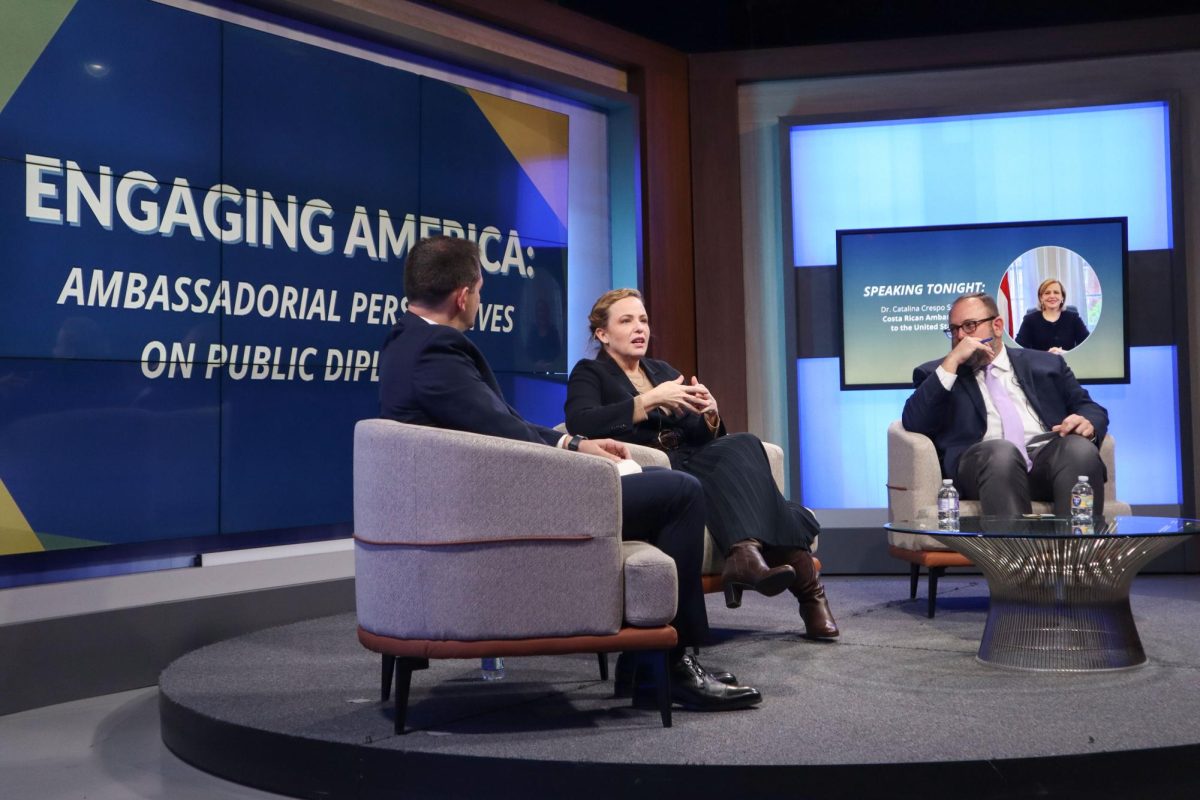A Muslim religious leader discussed the study of Islam and its stances on relationships with family and friends in Duques Hall on Wednesday night.
Omar Popal, the founder of Tanwir Institute — an organization with the mission of serving the educational and spiritual needs of the Muslim population in the D.C. area — facilitated the lecture on the importance of maintaining relationships with family and friends within the Islamic faith. The event was hosted by the Muslim Student Association.
Popal said a key aspect of a young Muslim’s day-to-day life is assessing the relationships that they have with their family members. He said the parental “framework” of mind and “hierarchy” of values that is common in Muslim households differs generationally, which can make communication difficult.
Popal said children explaining their values to their parents can be like a person explaining to another how good pasta is, but if the other individual has never tried pasta, they will fail to understand its value. He said this is similar to a parent who may find it difficult to understand their children’s values that they haven’t been exposed to previously.
“That’s what it’s like trying to explain certain things to parents, they don’t understand that’s not their framework,” Popal said.
Popal said patience is crucial in relationships, especially with family members who have differing perspectives that an individual may not necessarily understand. He said sometimes all people need is for others to be patient with them for the situation to improve.
“If we’re willing to be patient with people outside the house, why wouldn’t we be patient with people inside the house?” Popal said. “If we’re willing to be patient with people who wouldn’t take a bullet for us, why wouldn’t we be patient with people who would take a bullet for us?”
Popal said that the Quran encourages Muslims to maintain good relationships with parents and siblings. He said that he suggests people distance themselves from family members who may be a “bad influence” rather than resorting to severing relationships entirely.
“Check in through text message. You don’t need to be buddy-buddy, you don’t need to be super close, but still let them know you’re there for them if they’re ever in need,” Popal said.
Popal said it was a blessing to have friends during the epidemic of human loneliness caused by the rise of cell phones and digital communication. He said cell phones have contributed to the epidemic of loneliness by giving people a virtual way to make friends or meet romantic partners instead of making in-person connections.
Popal said true friends are a blessing and that people should treat them as such.
“So if you have actual friends, cherish them, stop nit-picking, cherish them, like understand it’s a blessing from God to have a friend,” Popal said. “It’s a huge blessing — people don’t realize that.”
He said if one person is more committed in a friendship than the other, the other person should step up and address that they cannot reciprocate the same way, as these relationships are too valuable to lose.
The lecture ended with a question-and-answer section where students asked questions regarding ways to have stronger communication with family members and create boundaries. One student asked if setting personal boundaries with parents, like knocking on a bedroom door before entering, was permitted in Islam under the “sacred law,” or the Islamic code of conduct.
Popal said every culture varies in its perspective on boundaries, and many cultures may not promote a certain level of privacy between parents and children. He said the Islamic sacred law recognizes cultural differences and it leaves certain things up for interpretation.
He said based on age there are certain boundaries that should be established as a person gains more independence from their parents, for example, as children get older and are an adult living under their parent’s roof, boundaries need to be established through patience and communication.
“One of the biggest tribulations of our time is that people don’t communicate, people don’t want to talk, it’s hard for people to talk. Force yourself to find different ways of doing it,” Popal said.










